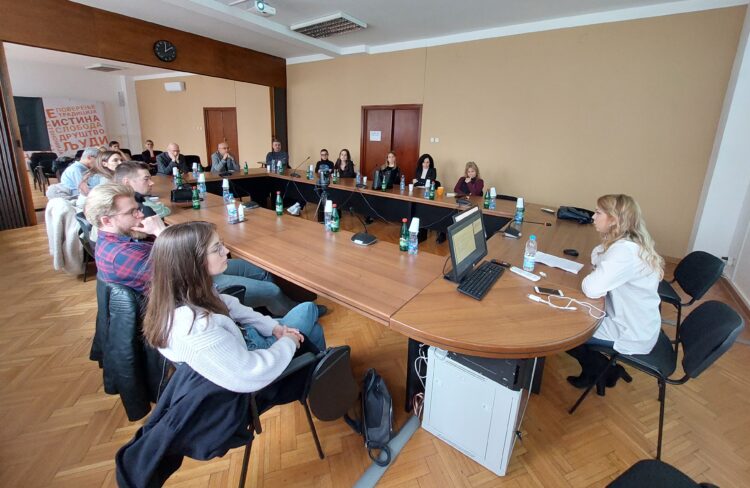As part of the cycle of lectures by new researchers at the Institute of Social Sciences, Jelena Riznić, a Junior Research Assistant from the Centre for Sociological and Anthropological Research, held a lecture on March 15, 2023 in the Great Hall of the Institute of Social Sciences on the topic “Woman, mother, female worker – the influence of the neoliberal form of capitalist regulation on women’s labor and reproductive rights in Serbia“.
The lecture was devoted to the social status and rights of women in the Republic of Serbia. In the first part of the lecture, the development of women’s labor and reproductive rights in the area of the former Yugoslavia was pointed out, citing the most important legal documents since 1945.
In the continuation of the lecture, the position of women in the transition process was reviewed. Namely, socio-economic transformation and the so-called democratic changes from the beginning of the 21th century in the Republic of Serbia brought a whole series of changes in the field of the legislative framework that regulates women’s rights. It was emphasized that in recent years there was a clear tendency to take over certain demands from the feminist agenda and implement them in the mainstream political strategy, with the aim of approaching an important (political) moving target — the European Union.
This is particularly noticeable in the sphere of politics and the political representation of women. At the same time, there is a clear tendency to strengthen conservative narratives, and the increasingly important role that certain conservative institutions play in society and in making certain political decisions.
The aim of the lecture was to point out, through a historical perspective, the changes that have taken place in this regard, and the basic features of the social position of women after the transformation of the socio-economic system and the influence of neoliberal capitalism. During the lecture, the main achievements of socialist Yugoslavia in the field of women’s labor and reproductive rights were pointed out, as well as unfulfilled goals that in some way affected the position of women after the collapse of the Yugoslav state, as the most numerous “losers of the transition”.

